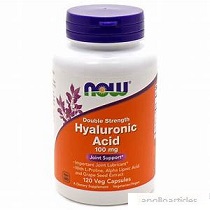Hyaluronic Acid Canada
Description
Hyaluronic Acid is one of the main ingredients of the extracellular tissue. This ingredient may be found in many biological liquids but most part is present in the connective tissue.
At the moment, Hyaluronic Acid is one of the most popular ingredients of the cosmetic products. These are skin care products, and antiaging products, and various products for makeup, nails, hair, and others.
Recommendations
 A wide application of Hyaluronic Acid in cosmetology is rationale. The most important and value quality of Hyaluronic Acid is an ability to bond and keep water. It is known, that one molecule of Hyaluronic Acid bonds 500 molecules of water. This ingredient works as a container which stores water, and as long as the skin dries, it sends molecules of water to the required parts. As you know, skin aging and many skin defects (including some types of acne) appear because of the dry skin. Hyaluronic Acid also takes part in the process of the regeneration of the skin tissues and protects the skin against ultraviolet.
A wide application of Hyaluronic Acid in cosmetology is rationale. The most important and value quality of Hyaluronic Acid is an ability to bond and keep water. It is known, that one molecule of Hyaluronic Acid bonds 500 molecules of water. This ingredient works as a container which stores water, and as long as the skin dries, it sends molecules of water to the required parts. As you know, skin aging and many skin defects (including some types of acne) appear because of the dry skin. Hyaluronic Acid also takes part in the process of the regeneration of the skin tissues and protects the skin against ultraviolet.
But Hyaluronic Acid is not just a great cosmetic product. This ingredient is the main component of the joint oil. This is the main ingredient of the biological lipid that protects the joints from the destruction.
Moreover, Hyaluronic Acid belongs to the articular cartilage. The amount of Hyaluronic Acid influences on the lubrication of the articular cartilages during the activity and a resistance of the cartilage to the compression.
Due to its therapeutic functions, Hyaluronic Acid is used in both medicine, and cosmetology. This ingredient is unique due to the therapeutic abilities. Hyaluronic Acid may be used in the treatment and prevention of such disorders as:
- cataract
- osteoarthritis
- arthrosis
- dryness of the cornea of the eye
- wounds/burns/trophic ulcers
- inflammatory processes in non-infectious joints
Hyaluronic Acid is also used to heal wounds after surgeries or diagnostic procedures.
Precautions
- do not use Hyaluronic Acid during autoimmune and oncological diseases, infectious inflammations of the skin, intolerance of the additional ingredients which are added to the supplements with Hyaluronic Acid
- Hyaluronic Acid may be used during pregnancy only after doctor’s consultation, and by his/her permission. The influence of this ingredients on the fetus is not completely studied
Drug Interactions
The application of Hyaluronic Acid will depend on the purposes. In cosmetology, Hyaluronic Acid is often used in the form of serum, cream, lotion. The action of Hyaluronic Acid directly depends on its type. Every type has its advantages and effects. A purification degree plays a great role. Therefore, it is necessary to consult a beautician before using products with Hyaluronic Acid.
In medicine, Hyaluronic Acid is used in the form of capsules/tablets for the oral use. They are used for the prophylaxis or as an additional active ingredient to improve a therapeutic effect. Capsules may contain various amount of Hyaluronic Acid but a daily dose does not usually exceed 400 mg – 4 capsules in the dose of 100 mg.
Using more than 400 mg of Hyaluronic Acid per day is pointless because it does not cause a faster onset of the therapeutic effect.
Side Effects
The side effects are not observed during the peroral application of Hyaluronic Acid in therapeutic doses. Using cosmetological products on the basis of Hyaluronic Acid, people may have such symptoms as swelling, redness on the applied area, edema, painfulness, and itching. They pass in several days after the procedure.

